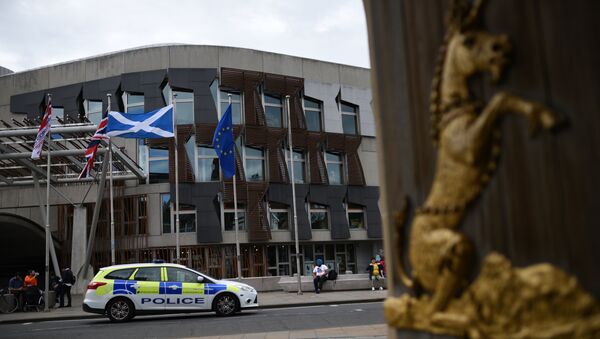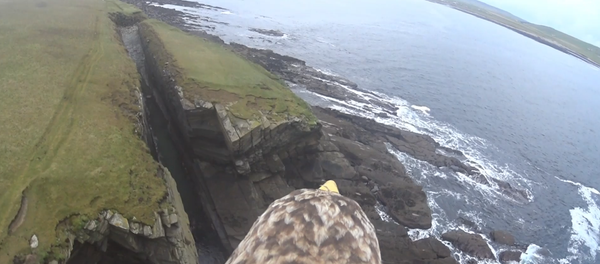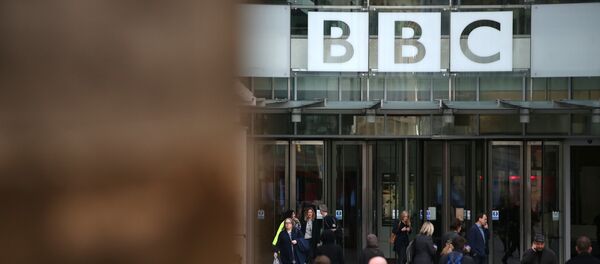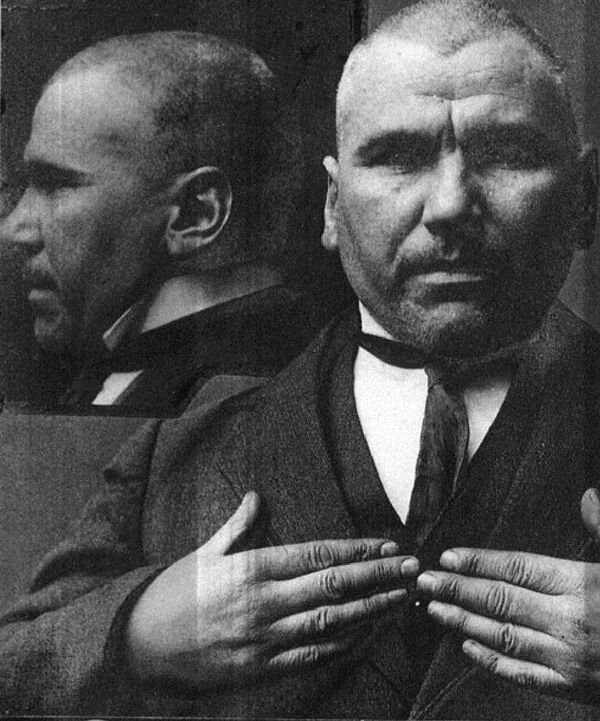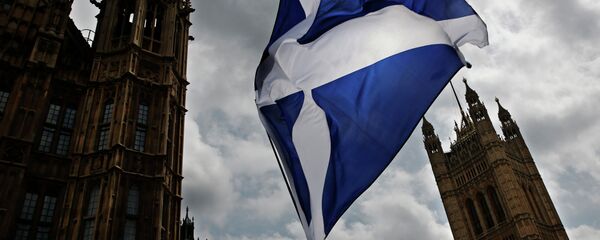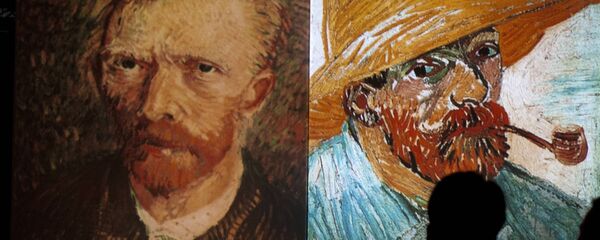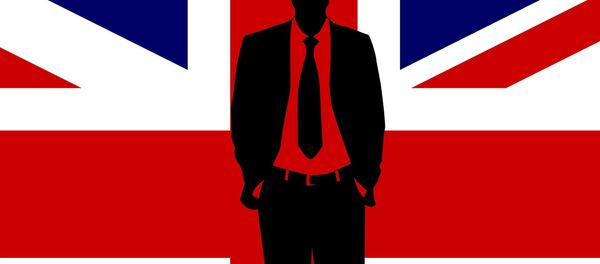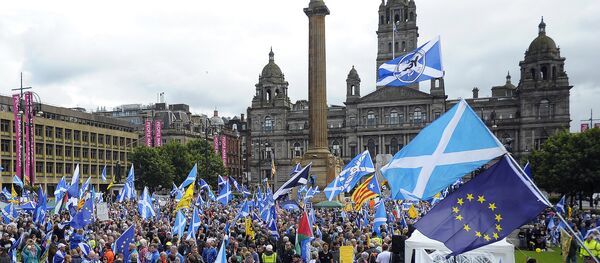On the eve of the annual Hope Over Fear Independence Rally in Glasgow, the 6th I have had the pleasure of co-organising, the Organising Committee announced we intended to provide some pre-Rally entertainment by using our Big Screen to show an edited version of the Hollywood Blockbuster Braveheart.
It would be shown before the official rally started to occupy those who always turn up early and help set the mood for the day. For those who don't know it is a movie which purports to portray the life of a Scottish Freedom Fighter from the 13th Century called William Wallace.
The William Wallace I was familiar with was the Glasgow Celtic forward who achieved immortality as a Lisbon Lion playing in the first British team to ever win the European Cup in 1967.
As a Politics and Economics student, I learned about Marx, Lenin, Trotsky, Luxemburg, Guevara, Castro, Mandela, Connolly and the great John MacLean.
READ MORE: UK Downplays French Threat to Halt Travel to Britain if No-Deal Brexit Happens
All freedom fighters and revolutionaries in their own lifetimes. But not William Wallace or Robert the Bruce. That was particularly ironic as I attended the beautiful Stirling University in Central Scotland from 1981/85 and didn't know that every area of my country hosted the most significant battles in the life of Wallace and Bruce.
Thankfully there is now a Heritage Centre near to the battle site which was opened in 2014, 700 years after the Battle of Bannockburn. It attracted 65,000 visitors in its first year.
As I got older and learned about the true nature of class society and the power of the state during the titanic Miner's Strike of 1984/85 I began to resent my formal school education.
I couldn't believe I'd never heard of a guy called John MacLean who was born only a couple of miles away from me in Glasgow in 1879 but who led incredible battles against participation in the First World War and for worker's rights and the independent Scottish Republic.
This guy was imprisoned 5 times in his life for taking on the British state and in 1918 was appointed Bolshevik Counsel to the First Soviet Workers Republic by Vladimir Lenin himself. A wee guy from Glasgow, a school teacher, was recognized by the leaders of the 1917 Russian revolution despite being thousands of miles away.
For many years I embroiled myself in socialist politics and read more about the Russian revolution, the Cuban revolution, France 1968, Chile 1973, Nicaragua 1979.
The list went on and I became an irreconcilable socialist and internationalist but in the left wing groups I associated with Scottish independence was rarely discussed and never encouraged. It was the British road to socialism all the way.
READ MORE: UK's No-Deal Brexit Scenario Faces Risk Due to Skilled Staff Shortage — Reports
I used to question why MacLean supported an independent Scotland if he was a socialist and internationalist but got fobbed off with stories about idiosyncrasies and ill-health warping his views in later life, even though he only lived until he was 44.
Then a film was premiered in Stirling in September 1995 which was to challenge my hitherto held beliefs. It was called Braveheart and purported to be based around the life of Scottish freedom fighter William Wallace.
I remember sitting in a cinema in central Glasgow to watch it and being blown away by the story and underlying message of rebellion against tyranny and bravery in the face of bigger foes in the fight for freedom. It was superb. At the end I joined everyone in the cinema on my feet cheering and clapping. Apparently that happened all over Scotland.
Was it a true story? Not entirely. Was it a great story? Yes. I left the cinema and over the following weeks and months reflected on my political life to that day. I felt ashamed. I could quote chapter in verse about the Russian revolution, the Cuban revolution, the Chile military coup but don't ask me about William Wallace or Robert the Bruce. Two revolutionaries in their era.
It didn't matter a jot to me that Braveheart was not completely historically accurate. So the belted plaid they wore in the film was not around in the 13th century.
So Wallace didn't have an affair with Isabella of France. So the 1297 Battle of Stirling Bridge, which Wallace and his volunteer army won against incredible odds, did not actually feature a bridge. So what! It is a film, not a bloody documentary. What it conveyed was a story of rebellion against the tyrannical occupation of your homeland. Courage in the face of formidable foes. Betrayals from within your own side.
READ MORE: EU Chief Negotiator Slams UK Government for No-Deal Brexit ‘Blame Game'
To read some of the bitter and pompous comments from unionists and apparent supporters of independence in opposition to the screening of this film in Freedom Square you would question whether William Wallace actually existed.
Did he raise an army of volunteers to fight invading English armies? Yes. Did those English armies commit atrocities during their occupation of Scotland? Yes.
Did William Wallace develop battle techniques that allowed him to rout a much bigger and better force during the Battle of Stirling Bridge? Yes.
Was William Wallace eventually betrayed and captured by the English and tried for treason? Yes.
Was he brutally tortured and beaten to death in public as a warning to others not to rebel? Yes.
It's called, euphemistically, poetic license and just about EVERY film based on true events does the same thing.
Braveheart is not everyone's cup of tea. Name a film that is. But it is not anti-English, or embarrassing or cringe-worthy as some in ivory towers have suggested this week.
READ MORE: Fresh Brexit Referendum Could Spark 'Civil Disobedience' — Shadow Trade Minister
Believe it or not we know the film is not a true account of Wallace's life. We know it is embellished but it remains a brilliant story and, in my humble opinion, a fine film.
Spolier alert. In the top 10 List of historically inaccurate films, Braveheart is not number one. That honor is accorded to Pearl Harbour. It is not 2nd either. That accolade goes to Battle of the Bulge. 3rd is They Died With Their Boots On. 4th is Gladiator. Braveheart is 5th in the list.
But here's the rub. How many of you enjoyed Spartacus? I love it. It is probably my favorite film, next to Reds. Yet although the story is based on a real person the most famous scene of all is inaccurate. Spartacus was killed in the battle with Crassus in Luciana. He wasn't captured and then humbled by the "I'm Spartacus" display of loyalty which never fails to bring a tear to my eye. He wasn't crucified and shown his "free" son before he died.
It had been based on his book Proved Innocent: The Story of Gerry Conlon of The Guildford Four and I was blown away by the film and filled with rage and anger at what the British State had done to these men and women and their families, alongside the Birmingham Six and Maguire Seven.
But Gerry pointed out some inaccuracies like the fact he didn't share a cell with his dad and the lawyer Gareth Peirce, played so well by Emma Thomson, wasn't actually his dad's lawyer and as a solicitor was not allowed to speak in the London High Court as she was portrayed in the film.
Wow! Powerful scenes in the movie were not accurate. Did it detract from the power of the story and underlying message of British State deceit and lies? Not a jot. Disgracefully not a single police officer or state official has ever been charged for the fit-ups of those innocent men and women.
Films are primarily for entertainment. They are not documentaries. Good films can inspire you to want to learn more about the story being told. That is what Braveheart did for me. I'm sure I'm not the only one.
The views and opinions expressed in this article are solely those of the author and do not necessarily reflect those of Sputnik.

